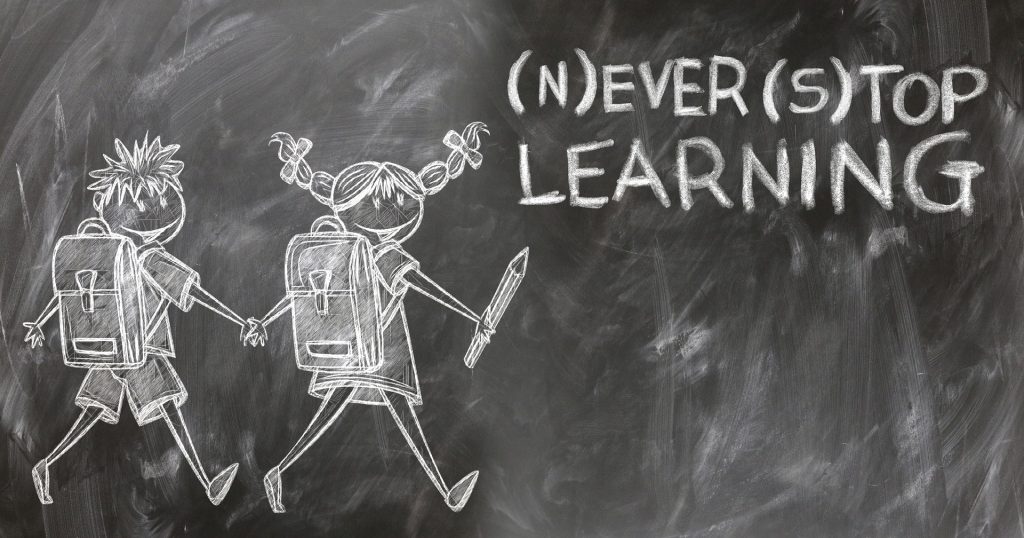
There are many skills that you can teach your child from the day they are born to when they leave your nest. In this post we will be looking at teaching your child life skills age by age.
Importance of teaching your child life skills age by age
When teaching your child life skills age by age it’s not only important for your self-care, but also for your child’s development. Life skills can allow your child to feel empowered, work on their socialization skills and reasoning skills, and also help develop healthy self-esteem.
The list of age-related skills I will be sharing with you will prepare your child for each year of his or her life up until they leave home.
Age 2 and 3- Chores and Grooming
At this stage of life your child will only be able to learn basic life skills such as small chores and basic grooming. You may find by the age of 3 your child is able to do a little more ans should be able to complete the following:
- Put clothes that need to be washed in a laundry basket
- Dressing themselves ( with help)
- Putting the dishes in the basin after meals
- Help setting the table
- Brushing teeth with assistance
- Counting Money with coins
Age 4 and 5- Names and Numbers
At this age your child should know the basic safety skills. Your child should know the following:
- Full name and address and how to reach you by phone
- How to call emergency services
Apart from the above safety skills, you should also teach your child the following life skills:
- Brush teeth (with help)
- Comb hair (with help)
- Wash face ( with help)
- Feed pets
- Clear the table after meals
- Basic dusting skills ( in areas easy to reach)
- Understand the basic concepts of money
- Putting clothes away
- Taking dirty clothes to the laundry
- Choosing their own clothes to wear
Age 6 and 7- Cooking techniques
When your child reaches this age they should start to grasp basic cooking techniques. They should be able to help assist with cooking meals and should learn to do the following:
- Making basic meals such as sandwiches
- Assist putting the groceries away
- Wash the dishes
- Mix and stir meals or batter for cakes
- Chopping with a dull knife
Apart from the above cooking techniques, you should also teach your child the following life skills:
- Make the bed without assistance
- Having a bath unsupervised
- How to use household cleaners safely
- Dress themselves
- Straightening up the bathroom after use
Age 8 and 9 – Personal belongings
At this age your child should take pride in their personal belongings. They should be able to look after their belonging properly. This means they should be able to do the following:
- Care for high-value toys such as bikes
- Fold clothes
- Learning simple sewing skills
- Putting items away securely and safely
Apart from looking after their personal belongings, you should also teach your child the following life skills:
- Cleaning properly – using a dustpan and broom correctly
- Reading recipes and making basic meals
- Help create a grocery list
- Take out the trash
- Counting money for groceries
- Taking care of personal hygiene ( without being told to do so)
Age 10-13 – Independence
At the age of 10, your child should start to gain skills they can perform independently. They should know how to do the following:
- Change their own bed sheets
- Plan and prepare meals with a number of ingredients
- Make purchases at the Grocery store
- Use the Oven
- Stay home alone
- Use the washing machine and dryer
Apart from the above independence skills you should also teach your child the following life skills:
- Ironing clothes
- Use simple hand tools
- Read labels
- Look after younger siblings
Age 14-18 – Advanced skills
By the age of 14 your child should not only have mastered the above skills but should also be able to do the following:
- Interview for and get a job
- Read and understand labels
- Create and maintain a diary or calendar
- Preform advanced chores such as cleaning the stove and unblocking drains
- Filling up the car with gas
- Checking the car tires for air
Young adults- preparing your child to live alone
As your child gets older and prepares to go away to college, you’ll need to teach them how to support themselves when living alone. Here are a few skills they should know before venturing out alone:
- Understanding basic contracts such as car and apartment leases
- Making regular doctor and dentist appointments and the importance
- Car maintenance such as oil changes
- Basic understanding of finances- how to manage bank accounts, credit cards, loans, and paying bills
- Understanding of good and bad debt
Teaching your children life skills – All ages
There are many ways by teaching your child life skills age by age can benefit them. However, there are some skills that can be used throughout their whole lives such as:
Asking questions
This may not seem that important when it comes to life skills, however in my opinion this is very important. When there’s something your child does not know they may feel embarrassed to ask. It can save a lot of grief if they ask for help. I tell my children all the time if you don’t understand or know anything then ask. This gives them the confidence to ask as well as making them feel empowered to ask for help. It’s better to ask then get something wrong. It’s important to advise your children that there’s no such thing as a silly question. Making them more inclined to ask questions when they don’t understand.
Problem Solving
Although your child will not need this skill at a very young age you can educate them about the benefits of problem-solving. Your child will go through many changes that will occur at different times in their lives such as how to be successful in school, navigating through a new job, making a sports team, and many more. It’s a lot easier if your child masters how to deal with these common challenges before they occur. This will make them less intimidating when they do arrive. It’s important you avoid solving these challenges for your child and allow them to figure them out alone. It’s the only way they will learn.
Dealing with change
Dealing with change can go either way depending on the child. Some children can deal with change better than others. It’s important to teach your child to be flexible and deal with change effectively as they will be a lot happier and successful.
Teaching your child life skills age by age- conclusion
There are many other life skills you can teach your child, however, the above are the basics they should master at each age. Some kids may master skills quicker than others and some make take some time. I’ve noticed that girls master skills around the home a lot quicker than boys, however boys tend to master practical skills such as car maintenance a lot quicker than girls so it really does depend on the child and development. You may need to be more patient with some children.


